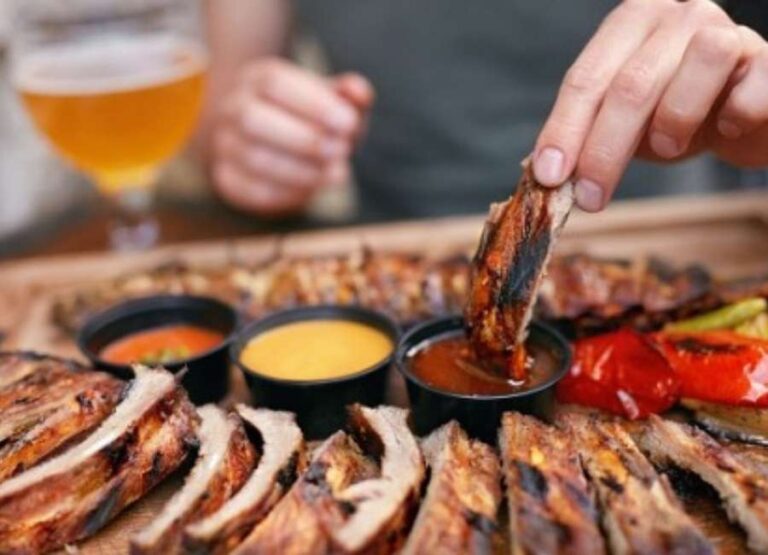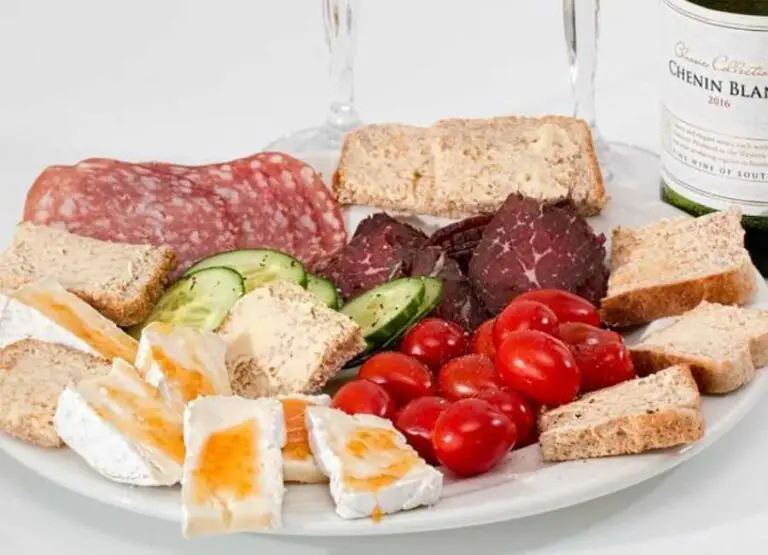Is Deer Meat Bad For You [Answered]
Deer meat is a very healthy and sustainable food source, but it can also be a source of possible health hazards.
We’ll examine the possible health advantages and disadvantages of eating deer meat in this blog article, as well as some things you should think about before opting to include it in your diet.
We’ll also offer some advice on how to cook deer meat in a healthy and safe manner.
You should know more about the advantages and disadvantages of eating deer meat at the conclusion of this article.
Is Deer Meat Bad For You
Deer meat, also known as venison, can be a healthy source of protein and nutrients when consumed in moderation.
It is leaner and lower in calories than beef and is a good source of iron, zinc, and vitamin B12.
However, it can also carry the risk of infection from diseases such as Chronic Wasting Disease (CWD), so it is important to only consume properly handled and cooked venison.
As with all foods, it is important to maintain a balanced diet and not rely too heavily on any one food source.
Additionally, if deer meat is not cooked properly, it may contain harmful bacteria and parasites that can cause food poisoning.
For this reason, it is best to cook deer meat thoroughly and avoid eating any undercooked or raw deer meat.
Nutritional Value of Deer Meat
Venison, another name for deer meat, is a lean protein source with a flavorful texture.
Given that it has less fat and calories than beef and other meats, it is seen as a healthy choice.
Deer flesh weighs 100 grams and comprises roughly:
- 121 calories
- 26 grams of protein
- 3 grams of fat
- 0 grams of carbohydrates
- 69 milligrams of cholesterol
Iron, vitamin B12, and niacin are among the vital vitamins and minerals found in deer meat.
It also has minimal levels of saturated fat and high concentrations of heart-healthy omega-3 and omega-6 fatty acids.
Potential dangers of eating deer meat
If deer meat, commonly known as venison, is not handled or prepared properly, there may be certain health concerns associated with eating it.
Several risks include:
- Chronic Wasting Disease (CWD): Chronic Wasting Disease (CWD) is a kind of transmissible spongiform encephalopathy (TSE) that affects deer and other cervids. Humans can get CWD by eating meat from afflicted animals.
- E. coli and Salmonella: Raw deer meat can contain harmful bacteria such as E. coli and Salmonella, which can cause food poisoning.
- Toxoplasmosis: This is a parasitic infection that can be present in deer meat.
- Lyme Disease: Lyme Disease is caused by bacteria transmitted by infected ticks, and deer serve as a host for the ticks.
- Lead Poisoning: If the deer have been hunted and killed with lead ammunition, there is a risk of lead exposure if the meat is consumed.
- Brucellosis: This is a bacterial infection that can be transmitted to humans through contact with infected deer.
- Trichinellosis: This is a parasitic infection that can be contracted from eating undercooked or raw meat from infected animals.
- Other Parasites: Deer meat can also be infected with other parasites, such as tapeworms and roundworms, which can cause health problems if ingested.
It’s critical to handle and prepare venison carefully to reduce the risk of sickness.
This includes completely cooking the meat to a healthy internal temperature, preventing cross-contamination with other meals, and storing it safely.
Read more about unhealthy meat you should know.
How to minimize the risks in eating deer meat
You should always practice good sanitary practices when handling and preparing deer meat to ensure that it is safe to eat.
The following are some common ways to avoid the risk that comes with eating deer meat:
- Choose the meat from a respected hunter or dealer to verify that it has been handled and kept correctly.
- To effectively eliminate any possible germs, fully cook the beef to an internal temperature of at least 160°F.
- Avoid eating raw or undercooked venison because it may carry dangerous germs like E. coli and Salmonella.
- To stop bacterial development, store the meat correctly in the fridge or freezer.
- Before and after handling the meat, properly wash your hands and the cooking surfaces.
- Use different cutting boards and utensils while preparing other items in order to prevent cross-contamination with raw venison.
How to Cook Deer Meat
To cook deer meat, you should start by trimming any visible fat from the meat. Then, season the meat with salt and pepper.
For best results, you should marinate the meat in a mixture of oil, vinegar, and spices for at least an hour, or overnight for a stronger flavor.
Once marinated, you can cook the meat in a pan or oven.
When cooking in a pan, use a high heat to sear the outside of the meat, then reduce the heat to medium and cook until the desired level of doneness is reached.
When cooking in an oven, preheat the oven to 350 °F and bake the meat for 15–20 minutes per pound of meat.
For best results, use a meat thermometer to ensure the meat is cooked to the right temperature.
Learn more about the Disadvantages of Eating Meat So Much.
Benefits of Eating Deer Meat
Eating deer meat can provide a variety of health benefits. It is low in fat and cholesterol, and high in iron, zinc, and vitamins B6 and B12. It is also a good source of essential fatty acids.
Additionally, deer meat is a lean, high-protein food that can help build muscle and keep you feeling full longer.
Furthermore, deer meat is a sustainable and environmentally friendly food choice, as it is often sourced from wild-harvested populations.
Finally, deer meat can be a great source of flavor and excitement for those who are looking for something different from the typical grocery store selections.
Precautions for eating deer meat
It’s important to follow a few guidelines while consuming deer meat to ensure its safety.
To eliminate any potential germs or parasites, all meats should be cooked to an internal temperature of at least 165 °F.
Deer meat should never be consumed uncooked or undercooked since it increases the risk of food poisoning.
To guarantee that the deer meat you handle and prepare is safe to consume, always use appropriate sanitation techniques.
Frequently Asked Questions
Does venison have a lot of cholesterol?
Deer meat’s cholesterol content might vary depending on the cut, although it is typically regarded as lean meat with low cholesterol levels.
Is venison meat bad for you?
No, eating deer meat is not always harmful. It is an excellent source of protein, iron, and other nutrients like any other meat.
However, the precise nutritional profile may vary depending on the cut of flesh and how it is prepared.
Does deer meat contain dangerous contaminants?
Deer meat occasionally contains impurities like lead or mercury, which can be dangerous if taken in significant numbers.
These impurities may originate in the environment or in the diet the deer were eating.
Can eating deer meat make you sick?
Yes, eating deer meat can make you sick if it’s not prepared correctly and cooked to the right temperature.
Deer meat that is raw or undercooked may carry dangerous pathogens like Salmonella or E. coli that may make you sick.
Is deer meat a healthy food option?
Deer meat does include protein, iron, and other necessary components, making it a rich source of nourishment.
However, variables like the cut of meat and the preparation method will affect the precise nutritional composition of deer meat.
Is it safe for pregnant women to eat deer meat?
Due to the possibility of contracting a foodborne illness, it is advised that pregnant women avoid eating undercooked or raw meat, particularly deer meat.
To lower the risk of foodborne disease, pregnant women should make sure to prepare deer meat to an internal temperature of at least 145 °F.
Conclusion
In conclusion, eating deer meat may be both a risk to your health and a fantastic source of protein.
Before opting to incorporate deer meat into your diet, it is crucial to conduct a study and comprehend the possible hazards and advantages of doing so.
Deer meat must also be properly prepared and cooked to lower the possibility of infection.
In the end, eating deer meat may be a sustainable and healthy decision, but it’s necessary to be aware of the hazards beforehand.

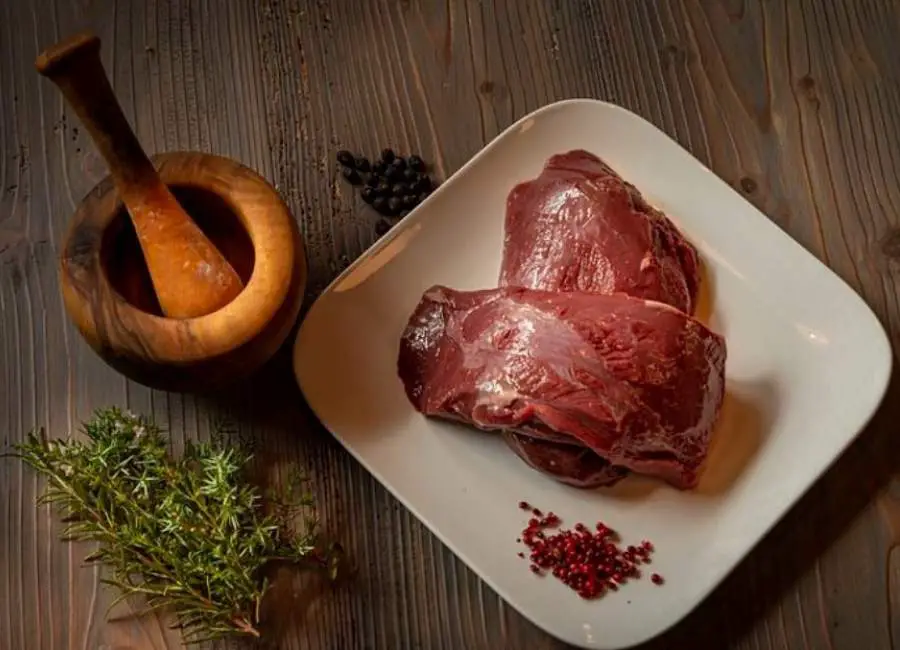
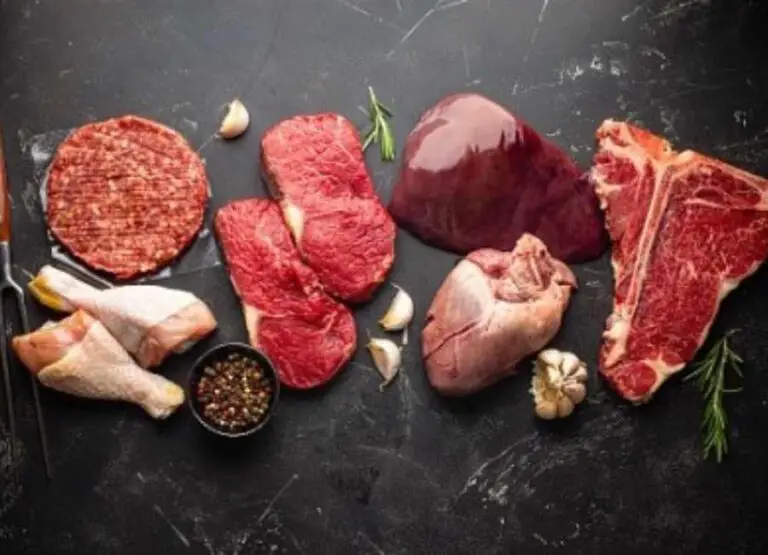
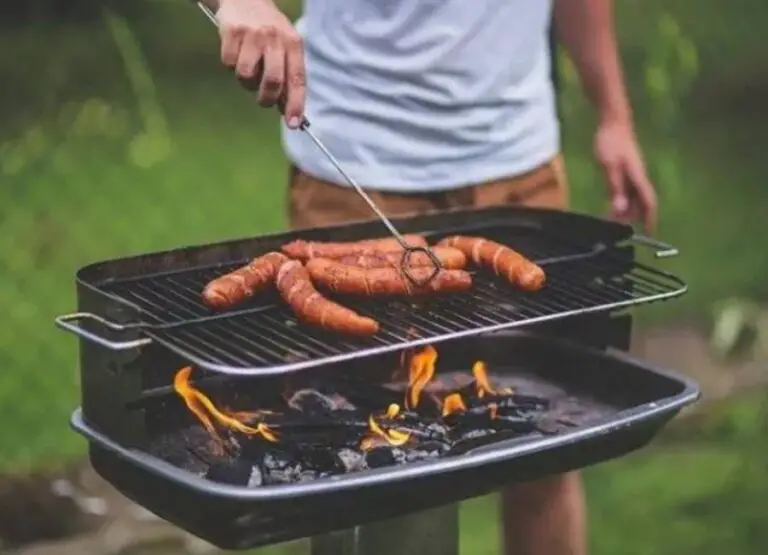
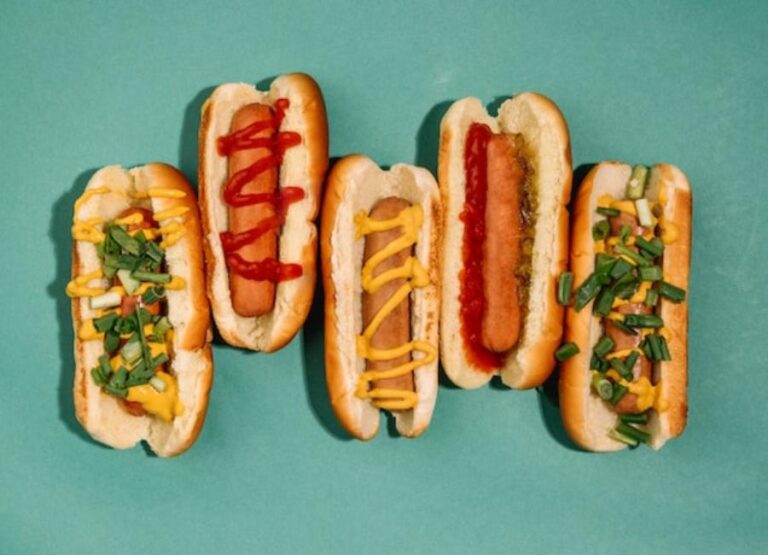
![Bad Smelling Gas After Eating Meat [Explained]](https://foodcreeks.com/wp-content/uploads/2023/02/Bad-Smelling-Gas-After-Eating-Meat-768x555.jpg)
